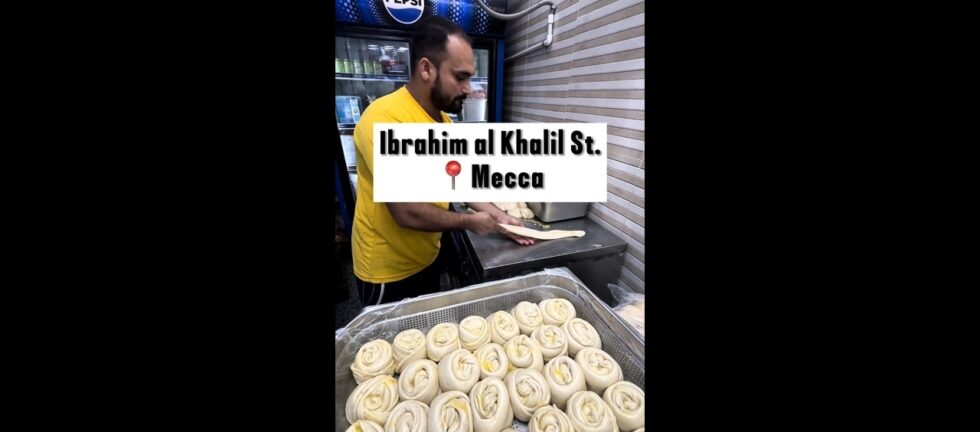When millions of pilgrims journey to Mecca for Umrah or Hajj, they often find themselves walking, driving, or staying along a street that holds more than just traffic—it carries the stories of devotion, tradition, and transformation. Welcome to Ibrahim Al Khalil Street, one of the most iconic streets in Mecca that runs close to Masjid Al Haram, serving as a vital artery for pilgrims from around the globe.
📍 Where is Ibrahim Al Khalil Street Located?
Located in the Ajyad district, Ibrahim Al Khalil Street runs parallel to the southern perimeter of the Masjid Al Haram (the Grand Mosque). It starts from the King Abdulaziz Tunnel area and extends past several major hotel towers, residential buildings, and commercial centers.
Its strategic placement means that thousands of pilgrims walk this street daily to get to and from the Grand Mosque, making it a central hub during peak pilgrimage seasons.
🏨 A Hub of Hospitality
This street is best known for being home to dozens of hotels that cater to a wide range of budgets—from 5-star luxury towers to modest guesthouses. Some of the top hotels on or near Ibrahim Al Khalil Street include:
-
Swissôtel Makkah
-
Anjum Hotel
-
Marriott Makkah
-
Dar Al Eiman hotels
-
Jabal Omar hotels
Pilgrims often book accommodation here months in advance, particularly for Ramadan and Hajj, due to the unbeatable proximity to the Haram and the ease of access to the main gates.
🛍️ Shopping and Essentials at Every Corner
Walking down Ibrahim Al Khalil Street is a sensory experience. The street is lined with shops and mini markets offering:
-
Prayer beads (tasbeeh) and mats
-
Attars (perfume oils) and Islamic caps
-
Souvenirs, Zamzam bottles, and dates
-
Mobile stores, exchange centers, and travel agents
-
Local snacks and fresh juices
Pilgrims often enjoy shopping here after prayers, picking up gifts for their loved ones or grabbing essentials for their stay.
🚌 Transport and Connectivity
Ibrahim Al Khalil Street is also a key point for transportation. From here, pilgrims can:
-
Catch shuttle buses to other parts of Mecca or Mina
-
Take taxis or ride-shares to Jeddah or Madinah
-
Walk through pedestrian pathways toward Haram or nearby markets
During Hajj, the street often gets reserved for foot traffic or regulated by authorities to control the crowd flow.
🍽️ Food from Around the World
Since pilgrims come from every corner of the world, the food scene here is beautifully diverse. You’ll find:
-
Pakistani and Indian restaurants
-
Egyptian and Yemeni cuisine
-
Turkish shawarma stalls
-
Indonesian and Malaysian food counters
-
International fast food chains like Al Baik, Hardee’s, and KFC
Many hotels also offer open buffets, while takeaway shops serve quick meals for visitors rushing to or from the Haram.
🕋 Spiritual Significance
While Ibrahim Al Khalil Street is not a historic Islamic site in itself, its name honors Prophet Ibrahim (Abraham), the father of monotheism and one of the central figures in the Hajj rituals. The street’s name serves as a reminder of his sacrifice, legacy, and connection to the Kaaba—believed to have been rebuilt by him and his son Ismail.
Many pilgrims find a quiet spiritual moment simply walking this road, reflecting on the journey and the steps they are taking in faith.
🧳 Tips for Visitors and Pilgrims
If you’re planning to stay or spend time around Ibrahim Al Khalil Street:
-
Book early, especially during Hajj or Ramadan.
-
Use pedestrian tunnels or shaded pathways to reach the Grand Mosque.
-
Keep a small bag with prayer items, water, and ID with you.
-
Learn a few basic Arabic phrases or keep a translation app for easier shopping.
-
Be cautious during peak prayer times, as the road gets very crowded.
🕊️ A Path of Purpose
Ibrahim Al Khalil Street is more than just a thoroughfare—it is a passage walked by millions each year on their spiritual journey. Whether you’re staying here during your pilgrimage or simply walking its length to reach Masjid Al Haram, this street becomes part of your personal Hajj or Umrah story.
With every step on this road, you are tracing the footprints of countless believers before you—each carrying hopes, duas, and faith toward the House of Allah.


